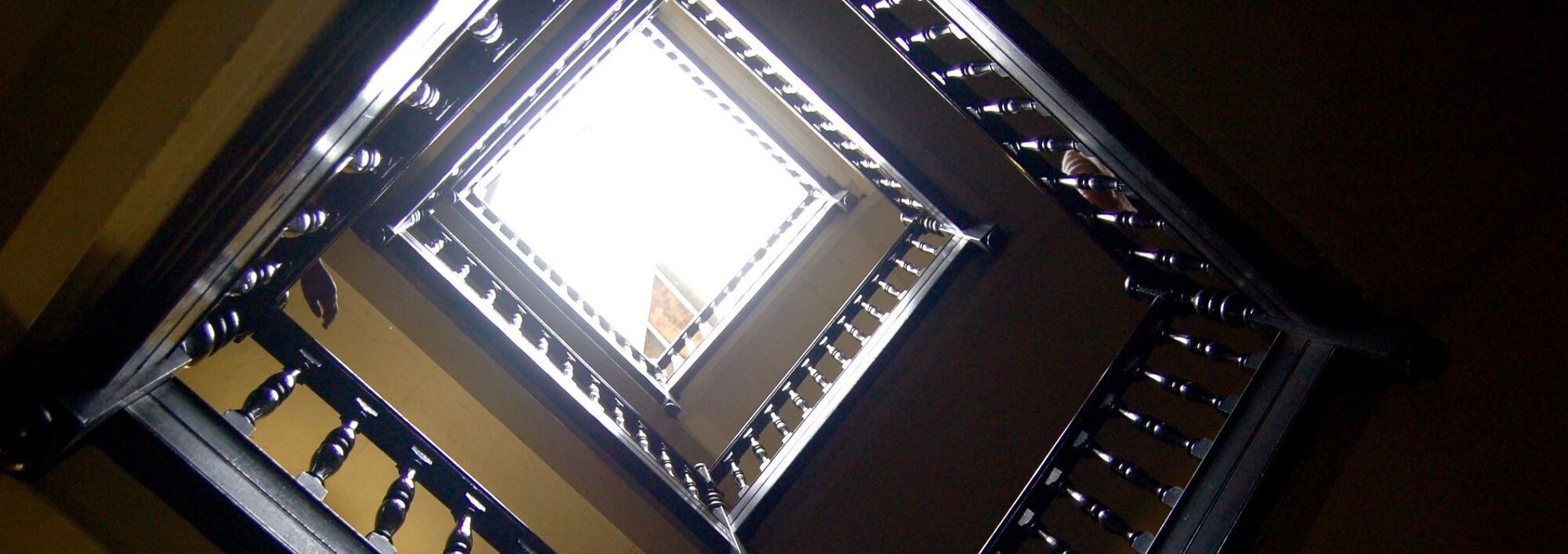
Built Environment and Net Zero - A COP26 Conference from the Centre for Sustainable Solutions
Built Environment and Net Zero Conference
The Centre for Sustainable Solutions hosted a free virtual conference on the Built Environment and Net Zero, on 11th November 2021 (9:00 - 16:30 GMT), the COP26 Presidency Programme's Cities, Regions and Built Environment Day.
Opening Address: Patrick Harvie MSP, Scottish Minister for Net Zero Buildings, Active Travel and Tenants' Rights, and Co-Leader of the Scottish Green Party, gave the opening address.
Event hashtags – follow and join in on social media: #UofGCOP26 and #BuiltEnviroConf
McLaughlin & Harvey Built Environment and Net Zero Poster Competition: Undergraduate and postgraduate students of UK Higher Education Institutions, from all disciplines and subjects, were invited to submit a poster on their research related the built environment and sustainability. Prizes were kindly donated by McLaughlin & Harvey. Deadline midnight GMT on 4th November. More details here.
About the Conference: The Conference was an opportunity to learn from and showcase work going on within the University associated with net zero and the built environment, by our staff and student colleagues, and as part of many collaborations and relationships with partners outwith the University.
The Conference had four broad themes:
- Reducing carbon emissions from the built environment;
- Low carbon heat;
- Climate resilience;
- Climate finance.
We presented two interactive panel debates as plenary sessions as well as a wide ranging set of parallel sessions held across two sessions in the morning and afternoon.
Programme:
09:00-09:15 Welcome and Introduction from Dr Stewart Miller, University of Glasgow's Sustainability Manager, and an Associate Director of the Centre for Sustainable Solutions.
Opening Address from Patrick Harvie MSP, Scottish Minister for Net Zero Buildings, Active Travel and Tenants' Rights, and Co-Leader of the Scottish Green Party.
09:15-10:30 Opening Plenary: Decarbonising the Built Environment, chaired by Prof. Gioia Falcone (Rankine Chair of Energy Engineering, Associate Director of the Centre for Sustainable Solutions, University of Glasgow).
Speakers: Igor Litvinyuk (UNECE Group of Experts on Energy Efficiency), Dave Pearson (Star Refrigeration Ltd), Paul Steen (Vattenfall Heat UK), Jonathan Hines (Architype Ltd.), Prof. Dejan Mumovic (UCL Faculty of the Built Environment).
Session: Each panelist gave a 4-5minute introduction to a relevant challenge or unique achievement. This was followed by a structured debate facilitated by the Chair. The debate covered low-carbon construction, greater energy efficiency, more sustainable materials, low-carbon heating, cooling and power, opportunities and challenges of different building archetypes, and the role of policies.
10:30-10:45 Break
10:45-12:15 Parallel Sessions 1 (see below for details)
12:15-13:15 Lunch
13:15-14:45 Parallel Sessions 2 (see below for details)
14:45-15:10 Break
15:10-15:15 Announcement of winner of McLaughlin & Harvey Built Environment and Net Zero Poster Competition
15:15-16:30 Final Plenary: Sustaining our Building Heritage Through the Circular Economy, chaired by Prof. Brian Evans (Glasgow School of Art / Glasgow City Council Urbanism Champion).
Speakers: Prof. Francesco Pomponi (Edinburgh Napier University), Linda Shetabi (University of Glasgow Postgraduate Researcher in Urban Studies), Niall Murphy (Glasgow City Heritage Trust).
Session: Each panel member made a provocation of 4-5 minutes on 'One thing you want to see change to sustain our existing building heritage and promote a more circular economy’. This was followed by a structured debate facilitated by the Chair involving him asking his own questions and drawing in attendees via the Zoom chat box.
Parallel Sessions (with links to abstracts)
1. Parallel Session 1 (10:45-12:15)
1A. Climate Finance
- Kit England (Green Economy Manager, Glasgow City Council): 'Mobilising Climate Finance for Mitigation and Adaptation – Challenges and Innovation for Solutions'. Speakers include Sumalee Khosla (U.N. Development Programme); Michael Mullan (Programme Lead: Adaptation Finance and Investment, OECD); Climate Policy Initiative; and Paul Watkiss (Paul Watkiss Associates).
- Prof. Fiona Bradley (Professor of Structural Engineering Design, University of Glasgow): ‘Evolving Digital Twins to Optimise Whole Life Performance of Buildings’.
- Moses Jenkins (Historic Environment Scotland): ‘Fabric Improvements for Traditional Buildings’.
1C. Systems, Sensors and Networks
- Dr. Jeff Kettle (Electronic & Nanoscale Engineering, University of Glasgow): ‘Development and Demonstration of Wireless Sensor Networks for Autonomous Building Information Monitoring Systems’.
- Orestis Angelidis (Industrial PhD student on energy systems, University of Glasgow): ‘Holistic 5th Generation District Heating and Cooling Ambient Temperature networks: Integrating the Electricity Network to the Thermal Network as a Way to Decarbonise the Energy Sector’.
- Kate Dougherty (WSP UK): ‘The Future of Office Design’.
- Prof. Ken Gibb (Urban Studies, University of Glasgow) and Anthony Higney (University of Stirling): ‘Learning From a Tenement Retrofit in Glasgow: A Cost Benefit Analysis’.
2. Parallel Session 2 (13:15-14:45)
- William Nibbs, Rob Westaway†, Prof Gioia Falcone (James Watt School of Engineering, University of Glasgow): ‘Repurposing Hydrocarbon Wells for Geothermally Heated Horticulture in the UK’.
- Lia Minty (James Watt School of Engineering, University of Glasgow): ‘Natural Mechanisms and the Built Environment, Secondary Functions of SuDS, Public Wellbeing and Environmental Benefit’.
- Prof. Duncan Maclennan and Dr. David Waite (Urban Studies, University of Glasgow): ‘Neighbourhoods and the Localisation of Life’.
- Dr. James White, (Urban Studies, University of Glasgow): ‘Homes of the future: Why Design Matters?’
2G. Carbon Management and Planning
- Alan Muse, RICS Head of Construction Standards, ‘ICMS3: A World First for Carbon Management in the Built Environment’.
- Dr. John Carnie (Urban Studies, University of Glasgow): ‘The Role of Planning in Delivering Climate Change Goals’.
- Prof. Larissa Naylor et al (School of Geographical and Earth Sciences, University of Glasgow): ‘Using Dynamic Coast Data to Help our Coastal Cities and Towns Become Sea Level Wise’.
- Dr. Ria Dunkley, et al (School of Geographical and Earth Sciences, University of Glasgow): ‘Using Coastal Erosion Disadvantage Maps as a Climate Change and Strategic Urban Planning Tool for Scotland’.
Photograph courtesy of John Tweedie (jtweedie1976), under Creative Commons CC-BY.

